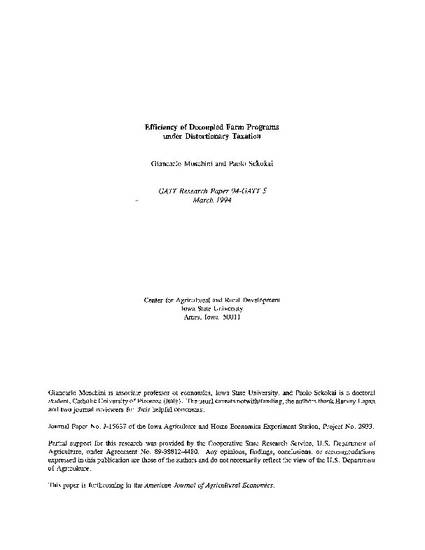
Article
Efficiency of Decoupled Farm Programs under Distortionary Taxation
GATT Research Papers
Publication Date
3-1-1994
Series Number
94-GATT 5
Abstract
When lump-sum taxation is not feasible, decoupled transfers to farmers (which require raising government revenue) will entail welfare loss somewhere in the economy. Assuming the government's objective is to assure a given welfare level for farmers, we show that when decoupling is possible, free trade is always superior to some tariff protection for a small country, even under Distortionary taxation. As expected, for a large country there is scope for an optimal tariff policy that improves the terms of trade. However, we show a separation between the exercise of market power through an optimal tariff, and the interaction of Distortionary taxation with transfers to farmers. We conclude that decoupling is usually desirable, even in a distorted economy in which lump-sum taxation is not feasible.
Disciplines
Copyright Owner
Iowa State University
Copyright Date
1994
Citation Information
GianCarlo Moschini and Paolo Sckokai. "Efficiency of Decoupled Farm Programs under Distortionary Taxation" (1994) Available at: http://works.bepress.com/giancarlo-moschini/12/
